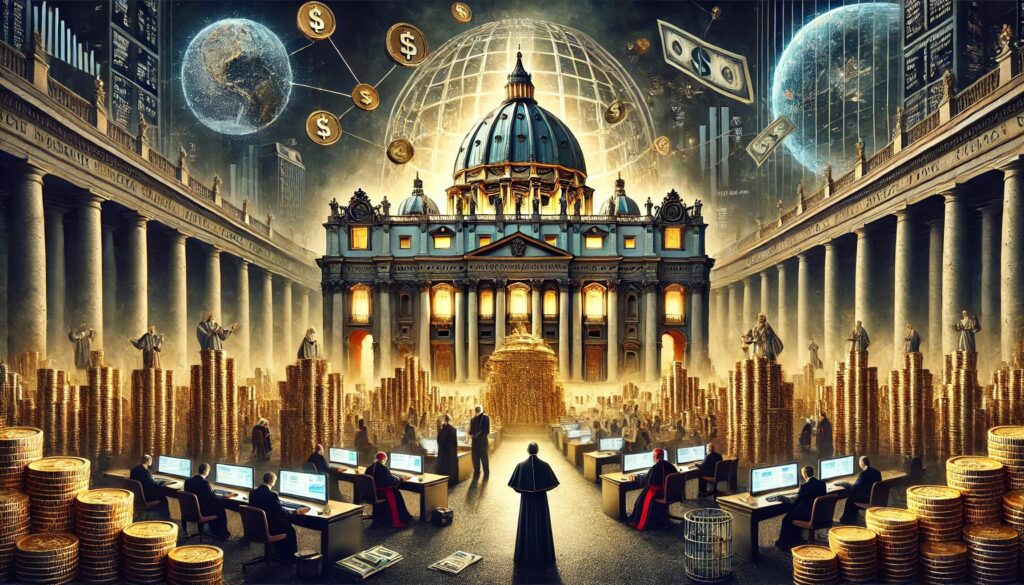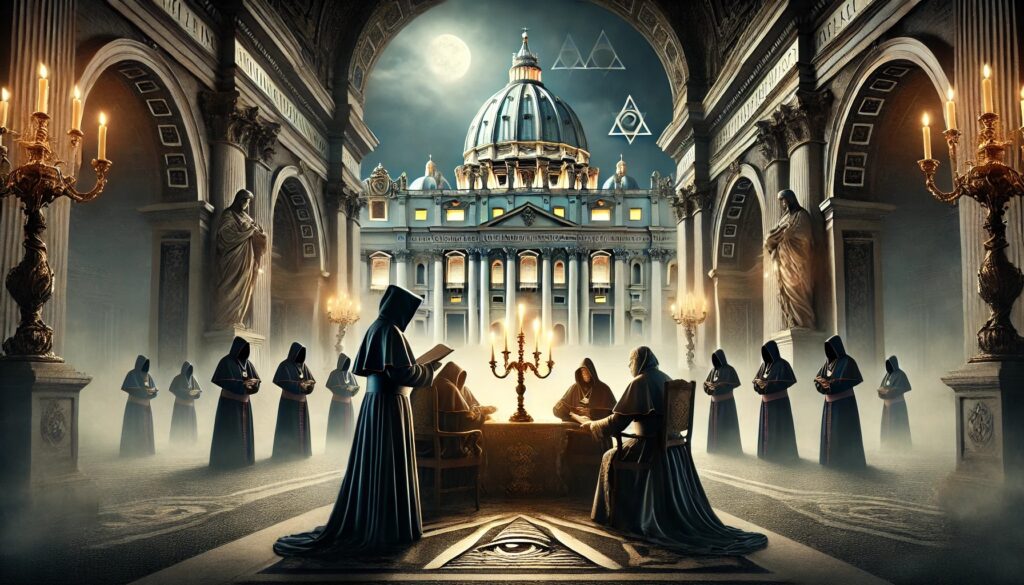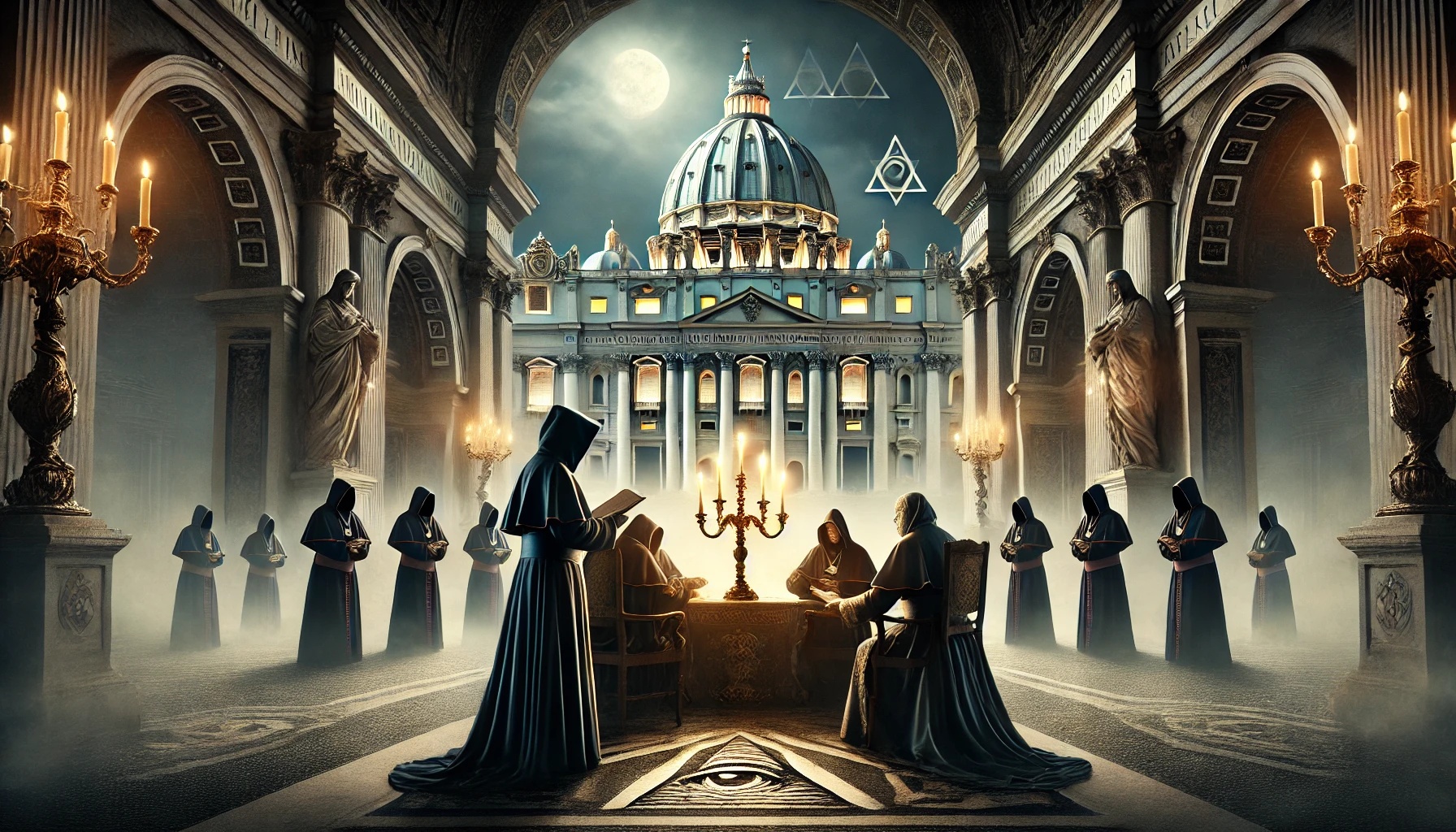The Vatican is more than a religious institution. It controls vast wealth, influences governments, and holds secrets that shape history. Its power extends far beyond the walls of St. Peter’s Basilica. Few understand the extent of its influence. It has survived centuries of political change, wars, and revolutions. Despite scandals, it remains a huge force in global affairs. As new challenges emerge, it adapts to maintain relevance in an ever-changing world.
Political influence
The Pope is not just a spiritual leader. He acts as a global diplomat (international lobbyist). The Vatican has ties to world leaders, intelligence agencies, and policymakers. It played a key role in bringing down communism in Eastern Europe. Additionally, it influences laws in Catholic-majority countries, negotiating treaties and shaping foreign policies. Leaders seek the Pope’s approval, as his words influence elections.
Moreover, the Vatican has embassies around the world. These embassies, called nunciatures, operate behind the scenes. Vatican diplomats hold private meetings with key decision-makers. They offer advice, issue warnings, and provide strategic support. By pushing for policies aligned with Catholic teachings, the Vatican exerts influence beyond democratic nations. Even authoritarian regimes engage with it to maintain legitimacy. Its reach is truly global. Beyond politics, the Vatican’s stance on migration, economic justice, and peace initiatives affects international policies. Through lobbying, it advocates for humanitarian aid and ethical governance.
Financial empire

The Vatican controls trillions. The Vatican Bank manages secretive accounts. Over the years, it has faced scandals, money laundering accusations, and mafia connections. Meanwhile, the Church owns real estate worldwide and holds extensive gold reserves. Its financial network reaches multinational corporations, big banks, super-rich families, governments, and elite organizations. While nations struggle with debt, the Vatican remains financially untouchable.
Furthermore, its investments span banking, real estate, and media. The Catholic Church ranks among the world’s largest landowners. It profits from business ventures, donations, and state funding. Since it enjoys tax exemptions in many countries, its wealth grows year after year. Despite calls for transparency, Vatican finances remain largely unknown. However, the Vatican also funds hospitals, universities, and social programs, further strengthening its influence in education and healthcare sectors worldwide.
The Vatican’s financial disclosures rarely reveal the full extent of its wealth. While official records present a controlled image of its assets, hidden reserves of untaxed properties, offshore accounts, and undisclosed investments suggest a much greater fortune. The Vatican’s real estate empire spans some of the most valuable locations in the world, including major European capitals. Moreover, it benefits from generous donations, many of which remain untraceable due to lack of oversight. With these concealed financial streams, the true scope of the Vatican’s economic power remains largely speculative, yet undeniably immense.
The Vatican and secret societies

The Church has a long history with secret societies. Some claim high-ranking officials work with the Freemasons. Others believe the Vatican has ties to the Illuminati. Some say the Jesuit Order functions as the Church’s intelligence arm. It shapes global policies and controls narratives.
Throughout history, the Vatican has maintained alliances with monarchies, banks, and elite groups. Some suggest it operates through covert networks that influence politics, finance, and social movements. While the Church has long opposed secret societies, its own structures remain highly secretive. Even within the Vatican, few understand the full extent of its dealings. The Jesuits, known for their strategic influence, have played significant roles in global education, politics, and religious governance.
The Vatican and war
The Church has played a role in major conflicts. During World War II, it remained silent on Nazi crimes. It facilitated secret escape routes for war criminals fleeing to South America. Later, it shaped Cold War politics. Today, it continues to influence military strategies in Catholic nations. Its power extends into defense policies and international relations.
Historically, the Vatican has blessed armies before battle. It has mediated peace agreements and provided refuge to political figures. Furthermore, it has collaborated with intelligence agencies and influenced Cold War operations. Even now, it shapes discussions on war, peace, and diplomacy. Some claim its influence in global conflicts is far greater than publicly acknowledged. Meanwhile, it engages in peace-building efforts and international negotiations, balancing its historical war-time roles with modern diplomatic interventions.
The Vatican and modern society
The Church influences laws on abortion, LGBTQ+ rights, and education. It lobbies governments to enforce religious policies. It funds conservative media outlets. Moreover, it shapes public opinion. In Poland, it dictates national politics. In Latin America, it guides social movements. Its control over moral and cultural narratives remains significant.
The Vatican owns media networks that influence religious and political discourse. Catholic doctrine shapes education policies worldwide. While it funds charitable organizations, it also promotes conservative social values. Even in secular societies, its influence is embedded in law and culture. Beyond traditional matters, the Vatican plays a role in climate change discussions, artificial intelligence ethics, and global inequality debates. Its presence in modern policy-making continues to expand.
The future of Vatican power
The Vatican remains one of the world’s most powerful institutions. It controls money, politics, and information. From behind closed doors, it shapes global events. As long as governments and elites seek its favor, its influence will persist. Its true power remains hidden, yet its impact continues to define the modern world.
At the same time, the Vatican adapts to modern challenges. It expands its digital presence. It participates in global discussions on climate change, social justice, and ethics. Rather than declining, its power evolves. Understanding the Vatican’s reach is key to understanding global power structures. Spanning centuries, its influence shows no signs of weakening. Whether through diplomacy, finance, or cultural impact, the Vatican will continue navigating the complexities of the modern world.

Leave a Reply